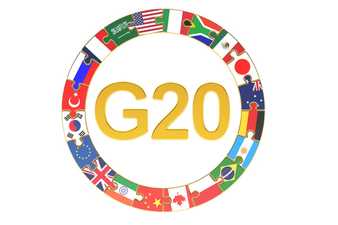| Home | About | Archives | RSS Feed |

@theMarket: G-20 Weighs on Stocks
 |
It wouldn't be a normal weekend in the financial markets without something to worry about. This weekend, it is the meeting of the two presidents, Trump and Xi, in Japan with $350 billion in new tariffs hanging on the outcome. What are the odds that they clinch a deal?
Not great, in my opinion. That doesn't necessarily mean that we need to brace for a worldwide economy-killing deluge of massive tariffs and counter-tariffs either. There is too much at stake for Donald Trump and China knows it. Instead, I expect we will get a classic Trumpian foreign policy "speak loudly and carry a little stick" maneuver.
Robert Lighthizer, our U.S. trade representative, already telegraphed just such an outcome earlier in the week. After a conference call on Monday with his Chinese counterpart, Vice Premier Liu He, several unnamed trade officials indicated that "the U.S. is willing to suspend the next round of tariffs on an additional $300 billion of Chinese imports while Beijing and Washington prepare to resume trade negotiations."
So sometime over the weekend, I expect one of those "my great friend, Xi, and I agreed to further talks, so I will delay implementing these new tariffs" kind of statements from the president. Of course, there will be the usual bluster about how much tariffs will hurt China and how we are making so much money on existing tariffs already, yada, yada, yada.
If my expectations are fulfilled, the markets should once again breathe a great sigh of relief. Stocks will likely rally. The economy will probably continue to slow. I expect businesses will continue to postpone investing while consumer prices on tariff-impacted goods will continue to rise.
Everyone (except Trump's wild-eyed loyalists) realize by now that the existing tariffs are hurting the economy, slowing employment, raising prices and causing more and more distress among the nation's farmers, manufacturers, and technology and retail companies. This year, we should see the largest one-year rise in tariffs since the Smoot-Hawley Tariff of 1930, which precipitated the Great Depreciation.
At the same time, the Fed's Jerome Powell, while acknowledging that the tariffs are hurting the economy, continues to hedge his bets. On Tuesday, he indicated that, contrary to Wall Street's expectations, a July rate cut was not a done deal. That was enough to send the markets lower just as the Dow Jones Industrial Average was about to join the S&P 500 Index in making a new historical high.
All of this week's jitters, however, is simply noise that you, the long-term investor, should ignore. Stocks had a great run last week and needed a pullback. It is that simple, and given the unpredictable nature of our president, pullbacks are increasingly becoming a dime a dozen. We can expect the S&P 500 Index to find support somewhere around 2,875. From where I sit, that simply clears the runway for another major leg up in the markets.
There is always an outside chance that I have it wrong. Could Trump do another "Kim Jong Il Walk Out" like he did in Vietnam a few months ago? If he does, or simply fails to cut any kind of deal (a low probability event in my view) then look out below. Markets will swoon, but at that point we should expect to see a central bank rate cut in July, which would support the markets.
Bill Schmick is registered as an investment adviser representative and portfolio manager with Berkshire Money Management (BMM), managing over $400 million for investors in the Berkshires. Bill's forecasts and opinions are purely his own. None of the information presented here should be construed as an endorsement of BMM or a solicitation to become a client of BMM. Direct inquiries to Bill at 1-888-232-6072 (toll free) or email him at Bill@afewdollarsmore.com.

